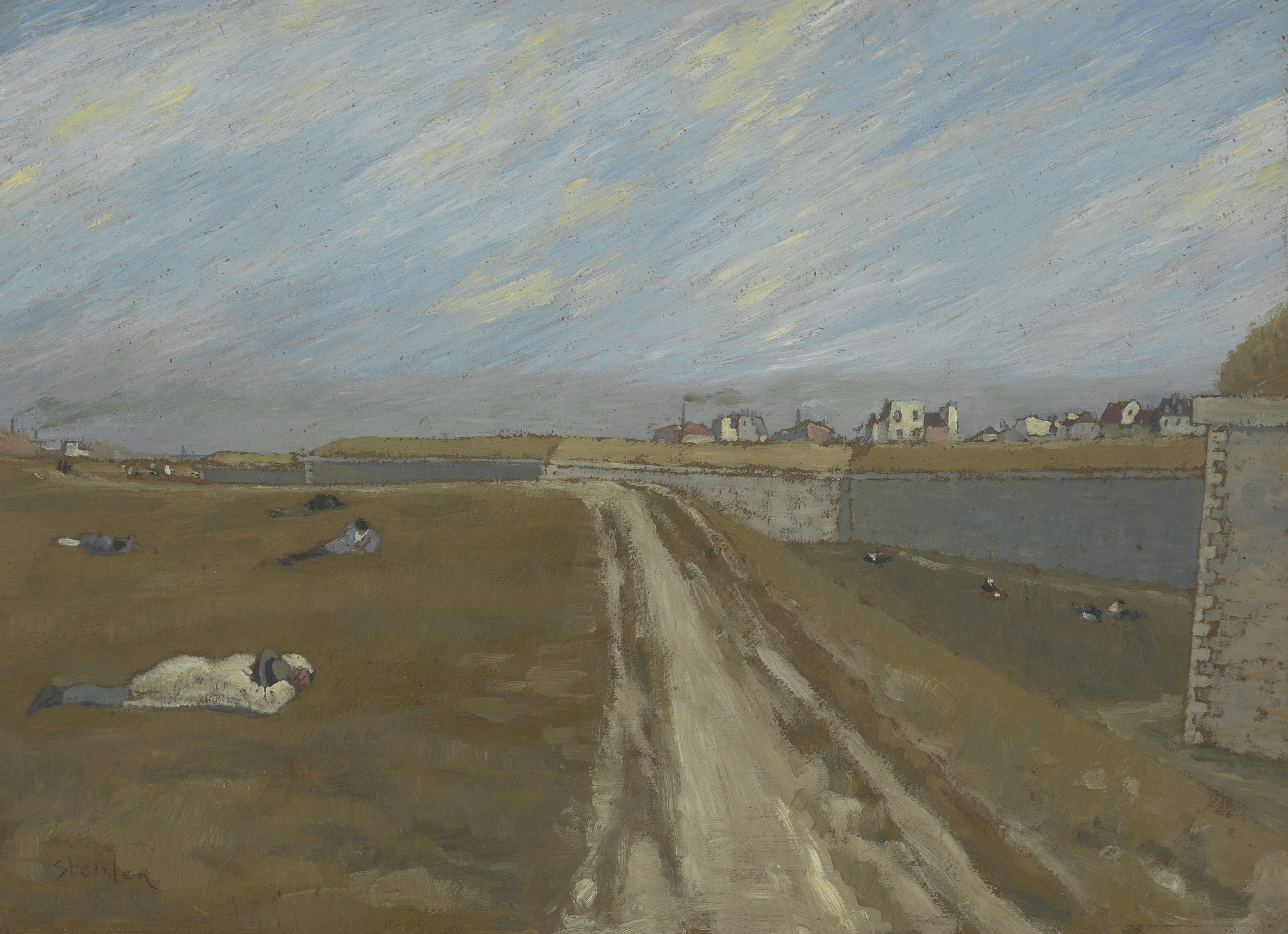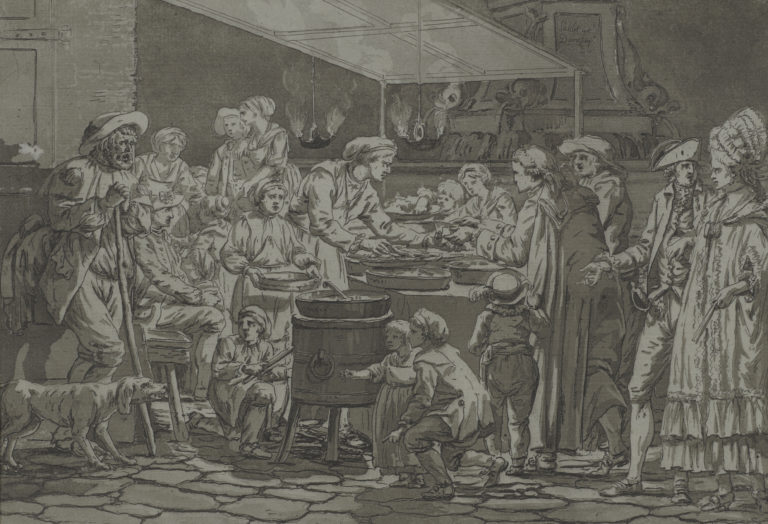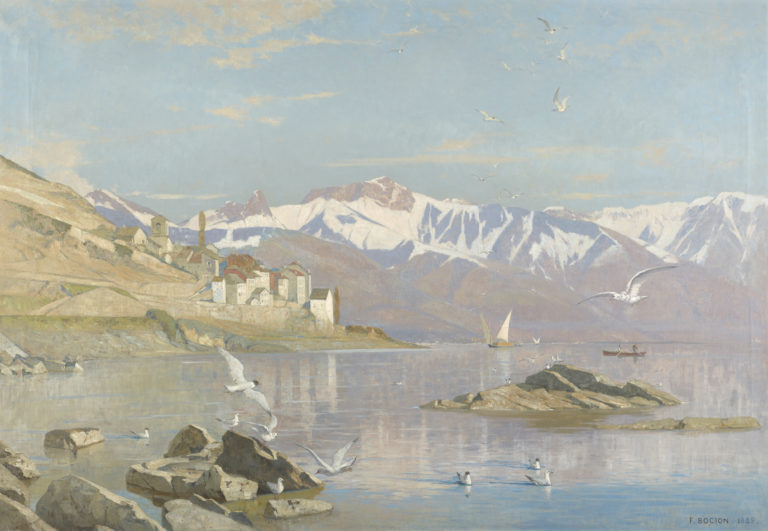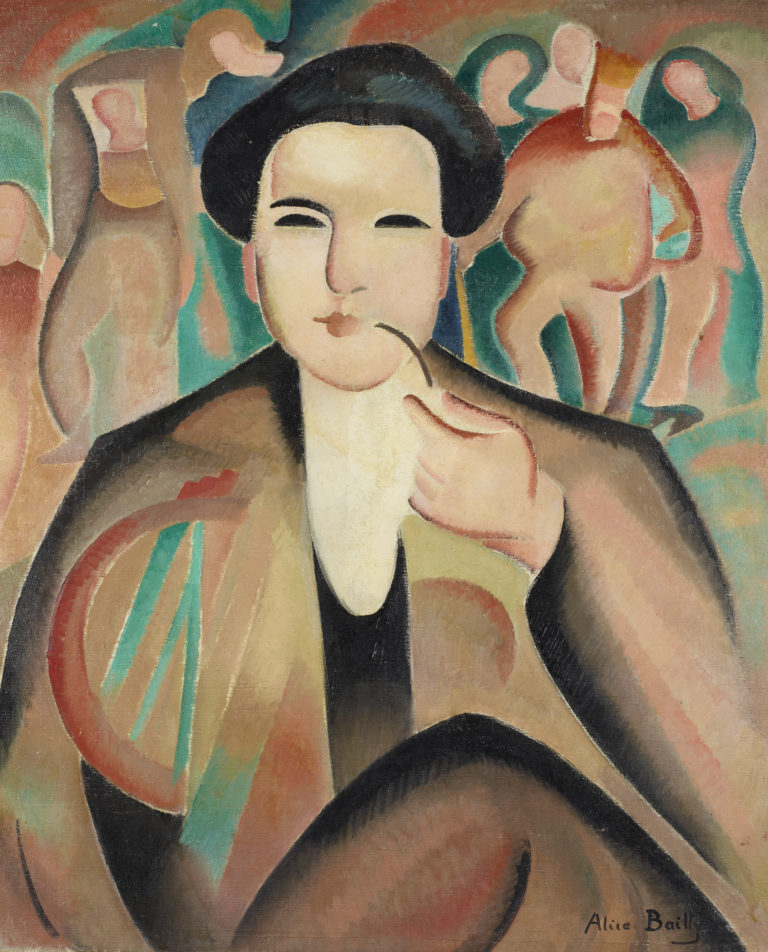Bibliography
Philippe Kaenel, with the collaboration of Catherine Lepdor, Théophile-Alexandre Steinlen, l’œil de la rue, exh. cat. Lausanne, Musée cantonal des Beaux-Arts, Ixelles, Musée communal d’Ixelles, Milan, 5 Continents Editions, 2008: fig. 165.




When Paris was modernised during the Second Empire, the poorest sectors of the population were driven out of the city’s historic centre. Like Vincent van Gogh and his Les Fortifications de Paris (The Fortifications of Paris, 1887, Manchester, Whitworth Art Gallery), Théophile-Alexandre Steinlen was attuned to the visual poetry of the fortifications around Paris and the surrounding rural areas: Montmartre, for instance, was still a relatively unspoiled hill where craftsmen, workers, and artists went for walks and leisure time.
This painting is part of Steinlen’s project to observe contemporary society on a grand scale with a naturalist eye. It is small in format and clearly divided into two zones by the horizon. The lower half makes use of a warm palette of greens, ochres, and pinks with a touch here and there of white and black, with swift, dabbing brush-strokes translating the thick, soft grass and the light refracted by the stone walls of the fortifications. In the upper half, the brush-strokes are longer, creating open skies with thin strands of cloud. Connecting the two powerfully horizontal zones is the dirt path gently snaking into the distance, creating a sense of depth. The snoozing workers are sketched in with Steinlen’s characteristically succinct flair. The smoke rising from the tall chimneys smudging the blue sky are a metaphor for man’s industrial alienation.
Steinlen’s friend Aristide Bruant wrote a song Pour les Fortifs (For the fortifications) lamenting the announcement of their demolition: ‘The fortifications / Where the men and women of Pantin / take their promenades, / where every Monday, / workers share a laugh / As they breathe the air of Bondy / And admire the beauties of nature / Lying on the grass / In the smoke of the trains that ring Paris / And darken the horizon…’.